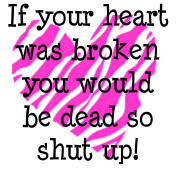When you start writing, you have to have an ending in mind. Always. Even if you know nothing else, know the ending. You can't just sit down and try to write a book without knowing where you are going. It doesn't work. You'll end up floundering in the middle and you won't get anywhere.
You don't have to know every little detail about the end. For example, if you're writing about Bob the explorer, a man who is searching for a lost Mayan statue that could stop the 2012 apocalypse from occurring. You know that in the end, he’ll find this statue, and he’ll find it with the use of his trusty flashlight in an ancient temple in Peru, 20 minutes before the so-called apocalypse begins. You don’t necessarily need to know that he’ll be with his sidekick Winston, or that there is an army of zombies chasing him. You just need to know the basics: what happens, where/when it happens, and the general how it happens. Just know the foundations of your ending, and it will go a long way in moving your story along.
Your ending should, in most cases, tie up loose ends. It's okay to leave a few threads hanging, but not too many. It’s fine to leave the reader wondering about one or two things (though some readers are more okay with this than others), but don’t overdo it. It’s also fine to tie up every loose end, as long as you don’t have too much falling action. (More on this in a later post. Falling action and I do not get along well.)
There should be a sense of closure to your ending. I once read somewhere that a good ending is utterly unexpected, yet still feels inevitable to the reader. I think this is an excellent way to put it. Make your ending unpredictable, but at the same time, make it feel like there’s no other way it could have ended.
Also, before you even start writing, you should probably know what kind of ending you want. The endings of most books can be sorted into three categories. These categories are:
Happily-ever-after ending: Fairly self-explanatory. The good guys win. The protagonists get what they want. People are, well, happy. The bad guy, if there is one, gets executed or thrown into Mordor or forced to listen to the Bill Nye theme nonstop. It's predictable, which isn't always a bad thing. Examples: most Disney movies, Harry Potter, The Lion, the Witch, and the Wardrobe
Non-ending: In a non-ending, the immediate conflict isn't really resolved. There's not much closure, because the story just kind of...ends. Now, this isn't always a bad thing (I'm the .001% of people who likes the ending of The Giver). This can also be known as the "make the fandom want to sue you" ending. Examples: The Giver, many series books, the seventh Harry Potter movie, part 1
Open-ended ending: The immediate conflict is probably resolved, but after that, much is left up to the reader to decide. Do the main characters grow up and get married? Does the plague come back and everyone dies? Does the MC become an insurance salesman? We don't know. Some people hate these, but I like them. They give the reader a chance to make up their own mind about the story. Examples: The Scorpio Races, the Chaos Walking Trilogy, I Am the Messenger
Bittersweet ending: My favorite kind. The immediate conflict is resolved. There's some amount of happy-ever-after, but there's also some amount of sadness. Maybe the main characters might have to part forever, or a friend has died, or nothing will ever be the same again. I love these kinds of endings. There's a definite sense of closure, but there's also a definite sense that these characters went through a lot, so the story left a lasting impression on them. Examples: Lord of the Rings, The Book Thief, Inheritance, pretty much every Warriors book
(There's also the "loop ending", but that probably only applies to Pendragon.)
Each of these types of endings are options for your book. Keep in mind, though, that some endings might not be as appropriate for some types of books. As in, should your dark, gritty horror story have a happily-ever-after sort of ending? Maybe not. Non-endings, or even open-ended endings, to some extent, tend to leave readers feeling like they were cheated, so you also might want to take that into account.
Also, here is a list of books with fabulous endings. I highly recommend reading, um, all of them.
What kind of ending does your book have? What kind do you prefer to read? Feel free to chime in with other comments about endings in general.
Originally posted in the lands of unicorns and glitter, aka The Epic, the Awesome, and the Random.




